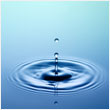Beverages:
Overview
Beverages - Overview
 Bottled water is sold for human consumption. It must, therefore, be sealed in a sanitary container and must meet all applicable federal and provincial regulations for drinking water. Bottled water is sold for human consumption. It must, therefore, be sealed in a sanitary container and must meet all applicable federal and provincial regulations for drinking water.
Bottled water cannot contain sweeteners or chemical additives and must be calorie and sugar free.
The export market has been the overall industry's largest single market.
The distilled spirits industry has a long history in Canada, and has traditionally made a significant contribution to the nation's economy. The first distillery of record was established in 1769 in Quebec City. By the 1840s, over 200 distilleries were in operation and Canada was earning a reputation as a producer of a distinctive high quality whisky, which still exists today.
The modern Canadian distilling industry produces a variety of spirits (e.g. whisky, rum, vodka, gin, liqueurs, brandy, spirit coolers and basic ethyl alcohol) but Canada's primary reputation, domestically and internationally, remains for the production of a distinctive rye-flavored, high quality whisky. The product is distilled from cereal grains (rye and corn primarily), aged in oak barrels for a minimum of three years, then bottled or sold in bulk. Canadian Whisky captures one-quarter of the total Canadian spirits market and is the only Canadian distilled spirits product which is "appellation protected". This means that, law can only produce it produced in Canada. (Agri-Canada)
|